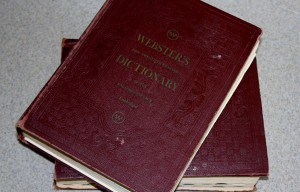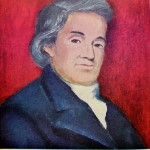Amy stirs, half asleep and freezing cold with a putrid taste sticking to her throat. In the distance, her two dogs bark frantically. Much closer, the wind whistles in the fog and gently brushes her cheek, and that puzzles her…?
Amy wakes with a jolt and shivers with fear. “Glenn!” she calls, coughs and shoves the lump that is her husband. “Glenn! There’s a fire! Glenn, wake up!”
Glenn feels flaccid and clammy, and just snores through the thick smoke now rushing over them. She looks towards the dresser and the digital clock but sees only dark. “Glenn!” She turns him over, her voice hysterical, harsh. She swallows clawing smoke and stale booze. Glenn snores. Amy tries to get out of bed but the smoke and the heat beat her back.
“Brian! Bria! Jump!!” What was a putrid, cold fog only seconds ago is now an oven pouring out suffocation. “Jump!!”
She pulls the comforter over her head and thinks of her children as she clasps her throat. The smoke presses down and crushes all hope. She hears the roar of a locomotive drown out the dogs, and she whimpers with her last breath, “Please, jump!”
What did you see in this scene?
Did you see a cold, dark, two-story house on fire? Did you see Amy’s dogs downstairs barking to get someone’s attention? Her kids asleep, already dead, or hopefully jumping for their lives? Did you see fire roaring up the stairwell? A desperate woman trying to wake a drunk? Did you see Amy surrender to the sheer weight of her circumstances? In less than a minute, did you see what mattered most in her all-too-brief life?
If so, you’ve got a pretty good mind’s eye because the entire 60-seconds was clouded in smoke.
Amy couldn’t see a thing! She coughed the smoke, heard the dogs, the wind and the fire, felt and smelled the inebriated Glenn and the putrid of something toxic. Jump shouted that it was a two-story house, wind and roar brought smoke and fire rushing up the stairs. Stale booze gave you a taste of why Glenn was not waking up. Not one word was written for the eyes. If the only sense Amy had were her vision, she would have died in her sleep like Glenn. End of story. And that is exactly what writing to the other senses does – it wakes up your reader, it lets them see through the smoke.
The senses are five vital, but very different, utensils in the writing’s toolbox. Here are my six sensible rules for how to use them correctly.
General Rule: “Taste and touch follow what we see. Smells and sounds precede our sight.”
Where you can show better tension, wordplay becomes fuel for your fire and you’ll want to break the rules. That’s the fun bit, but that’s not the first rule.
First Rule. “Don’t stop to smell the roses in first draft, just get your hero to safe harbor.” In other words, don’t let the minutia bog you down; finish the scene. Finish your novel.
It is only natural for the suspense author to write through his/her eyes because we envision our story as we write it – We make this stuff up! In first draft, it is much easier to just paint the broad strokes while our fireworks are still in the air. Fair enough. But use your second draft to color in all the tiny, mind-searing, sparkling bursts with precision. Not just: “Stole a Jet Ski and zigzagged out into the storm dodging bullets.” (1st draft). Let your readers: “Inhale the salty air, feel the rumble of the engine through her thighs and hold on tight as the Jet Ski slams-hard-against-the-surf, while Sluggo’s bullets wiz past her ear.” (2nd draft). Save those salty, rumbling details for when you’re more relaxed and can take the time to study the scene carefully, with all five of your senses functioning freely.
Second Rule: “Cleverly, but clearly, break the rest of the rules where it adds suspense.” Do this where it adds more tension, comedy or calamity.
“Just slept on it funny,” he gruffed and limped away.
That works, in a lame way, because people don’t usually sound gruff when they are trying to be funny (or use the word lame when trying to be serious), and your actions or characters will become indelible.
Third Rule: “Hearing delivers more than just sound.”
Sound is the hardest of all the senses to fool on the page, so it should be the easiest “other” sense to write to. Be careful: sound is also the only sense that we rely on with impunity. The other four work in harmony, they confirm or cancel each other out, but sound is a lone actor in the dark. Because we have two ears, we also get a sense of direction and distance which adds to the tension. When a sound beckons your character, and before they turn their eyes in that direction, their mind has already played back memories of what that sound – or voice – meant. Just reusing that sound and response in a later chapter can recall all the trauma in the first scene. You can now draw comparisons to that first scene without saying another word, without compromising pace or tension.
“A shot rang out! He heard the cock of an antique Winchester and knew who was behind it.” (2nd scene – I’ll let you color in the first scene.)
Your character will trust their ears before their eyes. They’ll likely first crouch, scream or run, or smile, laugh or pucker up based on what they hear, then see if they’re right. Or horribly wrong!
Horrific sights should freeze your mortal characters to a point where they cannot move. Frightening sounds should have them running first, thinking later.
Fourth Rule: “Touch and taste are secondary to sight.”
These two senses always confirm what we see. Well, almost always. Walk, barefoot through a dark cave and stepped on something cold and slimy that went hissss, and clearly you see a snake. But that only works in a dark cave, and because our ears confirmed our worst fears.
Touch and taste we can take as one because we rarely use them together – popcorn being one exception; sex being another. But touch and taste only work in only a limited way on the page because these two senses are internal by nature. If what you write is out of sync with dear reader’s preconceived notion, your tasty words will not be enrichment at all. One woman’s yum is another’s woman’s yuck.
No vegetarian is going to agree with your “mouth-watering” response to the question, how was the beef Wellington? (1st draft) But what if your character’s response were instead, “She rolled her eyes, held her tummy and tongued her lips.” (2nd) Carnivorous readers might still salivate, but your vegetarian audience might see gag me and make me throw up from the same three motions. And you haven’t carelessly taken a segment of your audience out of the story. That’s what I mean by be careful with taste and touch.
Generic feelings (kiss, hold, hug), and tastes (salty, cold, hot) work best with strong adverbs like humongous and dainty. Unique feelings (itching, stinging, horrifying) and tastes (briny, zesty, spicy) work best on their own.
Fifth Rule: “When in doubt, follow your nose.”
Scent is a different breed of cat all together. In my piece at the beginning, it is the smell of smoke that awakens Amy, and she has full command of all of her senses within a heartbeat. We cannot ignore the scent of fear. If something foreign gets past our nose, our subconscious instantly knows that it can’t let anything happen to our breathing. Scent is the only one of the five sense that will wake us up from a deep sleep with our adrenalin already pumping.
Scents stick with us, too. Some, forever…. Close your eyes, take a deep breath, and take in memories like: That wonderful aroma of Grandma’s kitchen; your wedding corsage; your dog after it caught the skunk. If the last one of these got you to blink or your nostrils to twitch, I rest my case. “Wonderful aroma” and “skunk” don’t fit. But, you knew that.
So the only trick here is to use scents correctly, by appeal. Fragrances heighten a sensual scene, or turn the screws on uncertain moments. Aromas can instantly cast light on the dark, or call forth a forgotten memory. Odors tell time’s passage, they foretell danger down the road and quickly time-stamp past, traumatic events.
Sixth Rule: “Men focus on the hunt; women gather on the periphery.”
Which brings us to the eyes. Writing descriptive suspense for the eyes is as easy as carrying on a conversation with a close confidant. Just vividly put on the page what your mind’s eye beholds and don’t hold back. If you’re writing in third-person, imagine your friend is telling you instead.
Only, it is important to remember that your men and women will see things differently. And that difference is primordial. And that primordial instinct is the very essence of believable suspense.
In pre-historic times, the male hunters depended on silence to sneak up on their prey. They used their two eyes together to fix on the distance needed to throw their spear and kill dinner. Another hunter knew exactly what this man was thinking by just following his gaze. Gatherers – the women, children and one-eyed old men – depended on making noise and using their voices to scare the wild things from the berry bushes. For protection, women used their two eyes to focus on two or more things at the same time. They learned to depend on their peripheral vision to spot movements off to the side. One wrong move and they’d be stung or bitten, or become the dinner.
Those two unique survival traits are still in our eyes today. Men still look straight into who or what has their mental focus, and women are still much quicker at spotting movement on the periphery while looking you in the eye.
That’s true about not only the lady’s deep, baby-blue, mischievous, sparkling, haunting, adorned, oval, cat-like, vicious, emerald, crying, smiling, laughing, sad, happy or otherwise adorable eyes that we can clearly see, but her mind’s eye, too. Her sixth sense is broad. His is keen.
Six Sensible Rules for Suspense
1) Don’t stop to smell the roses in first draft, just get your hero to safe harbor.
2) Cleverly, but clearly, break the rules where it make more suspense.
3) Hearing delivers more than just sound: direction; distance; friend-or-foe.
4) Touch and taste are secondary to sight.
5) When in doubt, follow your nose.
6) Men focus on the hunt; women gather on the periphery.
Next Month: Information dumps. Those lumps of facts and timestamps that precede your storyline are so often the hidden, root cause for your character’s actions. Until you get them on the page your story remains convoluted where you want to be clear. But factoids are just the canvas, not the painting. You can’t allow them to slow down the action and quick pace that is suspense! They’re essential, and, at the right moment, need to be clearly conveyed, but it doesn’t have to read like a rap sheet. Next month we’ll look at how to backfill your story without slowing down the action.


